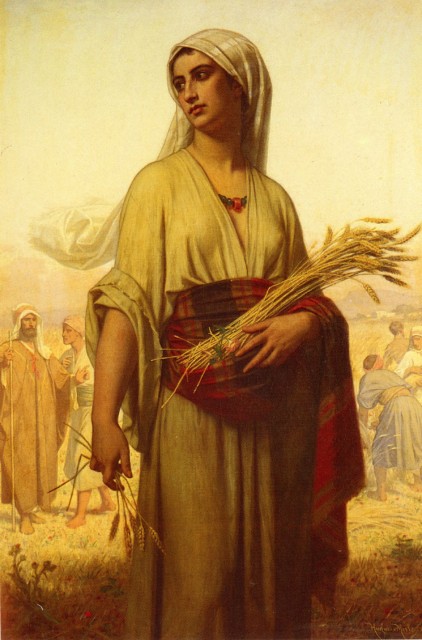Spiritual Sunday
Today in the Episcopal liturgy we read an episode from Ruth, one of my favorite books of the Bible. This gives me the opportunity to cite John Keats’ lovely allusion to Ruth in “Ode to a Nightingale”:
Darkling I listen; and, for many a time
I have been half in love with easeful Death,
Call’d him soft names in many a mused rhyme,
To take into the air my quiet breath;
Now more than ever seems it rich to die,
To cease upon the midnight with no pain,
While thou art pouring forth thy soul abroad
In such an ecstasy!
Still wouldst thou sing, and I have ears in vain—
To thy high requiem become a sod.
Thou wast not born for death, immortal Bird!
No hungry generations tread thee down;
The voice I hear this passing night was heard
In ancient days by emperor and clown:
Perhaps the self-same song that found a path
Through the sad heart of Ruth, when, sick for home,
She stood in tears amid the alien corn;
The same that oft-times hath
Charm’d magic casements, opening on the foam
Of perilous seas, in faery lands forlorn.
The sickly Keats is looking to the nightingale for solace and imagines other sufferers throughout the ages doing the same. He identifies with Ruth, who after her husband died didn’t return to her people (she was a Moabite) but rather followed her mother-in-law Naomi to Bethlehem. Ruth’s powerful words to Naomi have become part of many marriage ceremonies:
I will go; and where thou lodgest, I will lodge: thy people shall be my people, and thy God my God: Where thou diest, will I die, and there will I be buried: the LORD do so to me, and more also, if ought but death part thee and me. (Ruth 1:16-17)
In Keats’ version, Ruth is having second thoughts, at least momentarily, and is homesick. At that moment, nature in all its artistry (Shelley would call it “unpremeditated art”) reaches out to her.
Keats’ art too has the power to speak to us in our moments of deepest pain.
